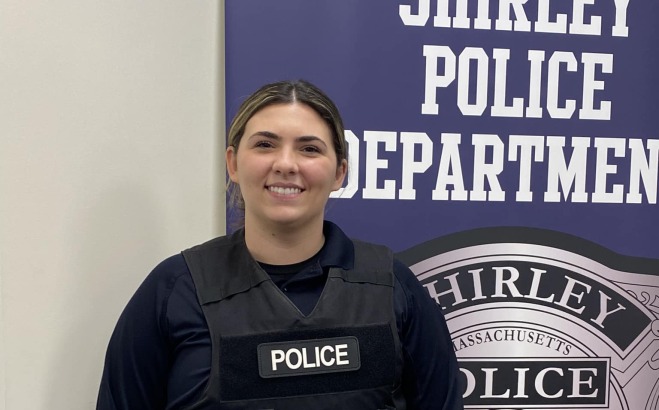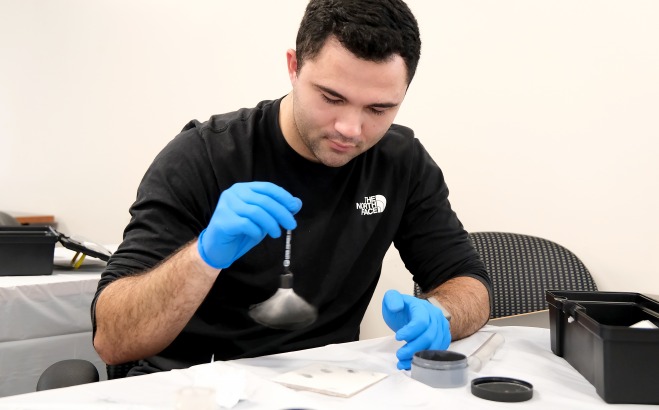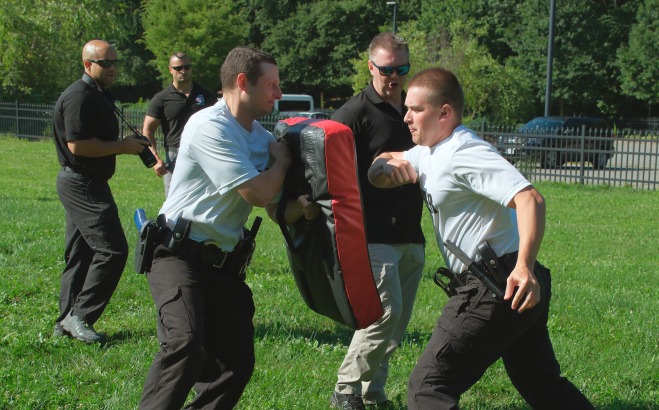
In Short
The Criminal Justice program leads to a BSCJ degree. You will dig into the nature and functioning of police, courts and corrections. Why do people commit crime, and what can be done to prevent crime? You will learn about current issues, such as criminal justice reform, and classic issues, such as how society tries to balance the need for order and the protection of individual rights.
Concentrations
- Be equipped to go directly into criminal justice jobs, or continue on to graduate school or law school. (If interested in law school you should be aware of the 3+3 program with UMass Dartmouth Law School.)
- Upon graduation you will have a broad view of the issues in criminal justice, as well as skills in writing, communication and research.
- Be exposed to current issues and opportunities in criminal justice, such as the new field of crime mapping.
Join us for an information session and tour on 4/30 at 1 p.m. Sign up today!
Criminal Justice is a broad field of study, covering topics such as juvenile justice, white-collar crime, gangs, hate crime, domestic terrorism, ethics, and many others. You choose from an array of electives and a variety of opportunities, including an internship in your senior year, Moot Court, the Honors Program, study abroad programs, and an internship with the Washington Center in Washington, D.C. The program is PCIPP approved.
Criminal Justice majors can earn their bachelor’s and master’s degrees, as well as complete police academy training, within five years with the Police Program (4+1) Concentration, Criminal Justice, BS.
Projects and Features
Criminal Justice honors student theses:
- “Women in Policing”
- “Analysis of the American War on Drugs”
- “A comparison of the U.S. interrogation technique developed by Reid Associates with the PEACE Method used in the United Kingdom”
Experiential Opportunities and a Look Inside the Courses
Internships
Study Abroad
Criminal Justice Courses and Events
Police Program Courses and Events
Curriculum and Other Information
- BS, Criminal Justice - Program information from the University Catalog.
- Four-Year Plan of Study - Required and elective courses for program completion.
- Municipal Policing
- State Police
- Transportation Safety Administration
- Probation
- Community Corrections
- Juvenile corrections
- Sheriff’s Deputy
- Correctional Program Officer
- Understand crime, criminology and the criminal justice system from a number of disciplinary perspectives—biological, psychological, sociological, political science, historical, and economic – in addition to criminology.
- View crime as an aspect of human behavior whose explanation is consistent with explanations of other aspects of human behavior, and as a dynamic phenomenon that is inevitably embedded in any society.
- Undertake the systematic study of the criminal justice system from a number of different perspectives – scientific, legal, and ethical.
- Identify important issues and problems as they affect individuals and society and suggest policy changes to address these issues
- Gather, evaluate, summarize and interpret qualitative and quantitative data using appropriate technology.
- Develop oral and written skills to communicate their analyses and recommendations.
- Develop both the computer and other technology skills that are inextricably integrated into the modern world, and the capacity to adapt to the ever-changing technological and computing landscape.
- Become aware of, and sensitive to, issues of ethics and diversity in the criminal justice system and to commit to becoming agents of change and justice.



